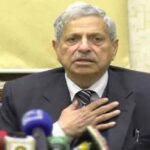In a strong rebuke, Pakistan’s National Assembly has passed a resolution denouncing a US congressional resolution that called for an independent investigation into alleged voting irregularities in the country’s February 2024 general elections. The move underscores Islamabad’s firm stance against what it perceives as unwarranted interference in its internal affairs.
The February 8 vote, in which no single party secured a clear majority, was marred by violence, communication blackouts, and allegations of rigging by the party of jailed former Prime Minister Imran Khan. However, the country’s election commission has denied these claims.
Ruling party lawmaker Shaista Malik, who tabled the resolution in the National Assembly, dismissed the US resolution as “completely against the facts” and asserted that Pakistan would not tolerate any such interference. The resolution expressed the House’s regret that the US resolution “does not acknowledge the free and enthusiastic exercise of the right to vote by millions of Pakistanis” in the recent elections.
Addressing a weekly news briefing, Foreign Office Spokesperson Mumtaz Zahra Baloch reiterated Pakistan’s deep regret over the US congressional resolution, stating that it stemmed from an “inadequate and erroneous understanding of the political and electoral processes of Pakistan.” Baloch described the US move as an “unsolicited interference in Pakistan’s domestic affairs” and emphasized that bilateral relations should be based on “mutual respect and sovereign equality.
“The spokesperson stressed that Pakistan desires relations with the United States “on the basis of mutual trust and confidence and non-interference in each other’s domestic affairs.” Baloch also expressed hope that the US Congress would play a more constructive role in strengthening Pakistan-US ties by focusing on areas of collaboration for mutual benefit.
Despite the opposition’s objections, the National Assembly resolution was adopted, with lawmakers from Imran Khan’s Pakistan Tehreek-e-Insaf (PTI) party chanting “shame-shame” and tearing up copies of the document. The PTI, which won the most seats in the February elections but fell short of a simple majority, has maintained that its victory was unjustly converted into a defeat by the election commission.
The ongoing dispute over the legitimacy of the elections and the US congressional resolution has further strained the already complex political landscape in Pakistan. As the country navigates these challenges, the government’s firm stance against external interference in its internal affairs underscores its commitment to safeguarding its sovereignty and democratic processes.






